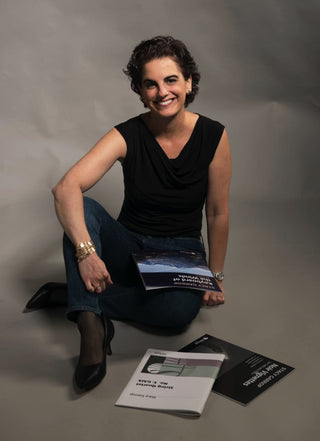Ms. Garrop is a full-time freelance composer living in the Chicago area. She served as the first Emerging Opera Composer of Chicago Opera Theater’s Vanguard Program (2018-2020). She also held a 3-year composer-in-residence position with the Champaign-Urbana Symphony Orchestra (2016-2019).
Garrop has received numerous awards and grants including an Arts and Letters Award in Music from the American Academy of Arts and Letters, Fromm Music Foundation Grant, Barlow Prize, and three Barlow Endowment commissions.
Garrop previously served as composer-in-residence with the Albany Symphony (2009/2010) and Skaneateles Festival (2011), and as well as on faculty of the Fresh Inc Festival (2012-2017). She taught composition and orchestration full-time at Roosevelt University (2000-2016) before leaving to launch her freelance career. She earned degrees in music composition at the University of Michigan-Ann Arbor (B.M.), University of Chicago (M.A.), and Indiana University-Bloomington (D.M.).
*****
1. When and why did you start composing?
When I was in high school, I was very active musically – I played the piano, sang in school choirs, and played saxophone in the marching band. But I had never tried composing until I enrolled in the high school’s music theory class. One night, the teacher assigned us homework to write a piece of music. It is as simple as that. After I wrote one piece, I wrote another, then another… I equate it to a light bulb turning on in my head that illuminated a completely new and fascinating room. I’ve never been able to find the off switch ever since.
2. How do you create new music? What does your composition process look like?
I started composing in the days before music notation software, which means I used pencil and paper for sketching out ideas and used India ink and vellum paper to produce final scores. Nowadays, while I still start with pencil and paper to get the ideas flowing, I move over to the computer once I understand what I need to do musically. I also graph the structure of the piece on a piece of paper, so I know how many sections there will be, as well as how the music will use tension and relaxation to shape drama of the music.
3. Who or what would you say are the major influences on your music?
To this day, I still do lots of score study of other composers’ works. If I’m working on an orchestra piece, I’ll study scores and recordings of works by composers, to see how they structure their sections, how they use tension and relaxation, and how they orchestrate. If I’m writing a piano solo, I’ll study works to see the different ways composers have utilized the instrument over the centuries. All of this said, the two composers who I find resonate deeply with me are Shostakovich and Brahms.
4. What are you proudest of so far in your career?
In 2013, the children of Supreme Court Justice Ruth Bader Ginburg commissioned me to set a letter written by Martin Ginsburg, the Justice’s late husband for soprano and piano. The resulting piece is called My Dearest Ruth, and it not only honors Martin Ginsburg and their extraordinary marriage, but it also honors Justice Ginsburg. It has been very meaningful to me, to write a piece for the woman who repeatedly helped women in the United States to be on a more equal footing with our male counterparts.
5. How can we make the musical world a more inclusive and diverse place?
We as a society need to fling open the concert doors to bring in more diverse voices. Present artists and ensembles who represent all corners of our country and beyond, and program music that will do the same. Moreover, go to lunch with as many people as we can who are of a different race, sex, heritage, and religion than our own. Only when we start conversations to find out what is important to each other, and listen to each other’s responses, can we start to create meaningful and lasting change.
*****
Watch a performance of her soprano saxophone composition “The Solitude of Stars” here: https://youtu.be/5jhxivDaa_w
And check out her just-published piece for horn, “Sansakara”: https://houghtonhorns.com/shop/sanskara-for-solo-horn-by-stacy-garrop/

